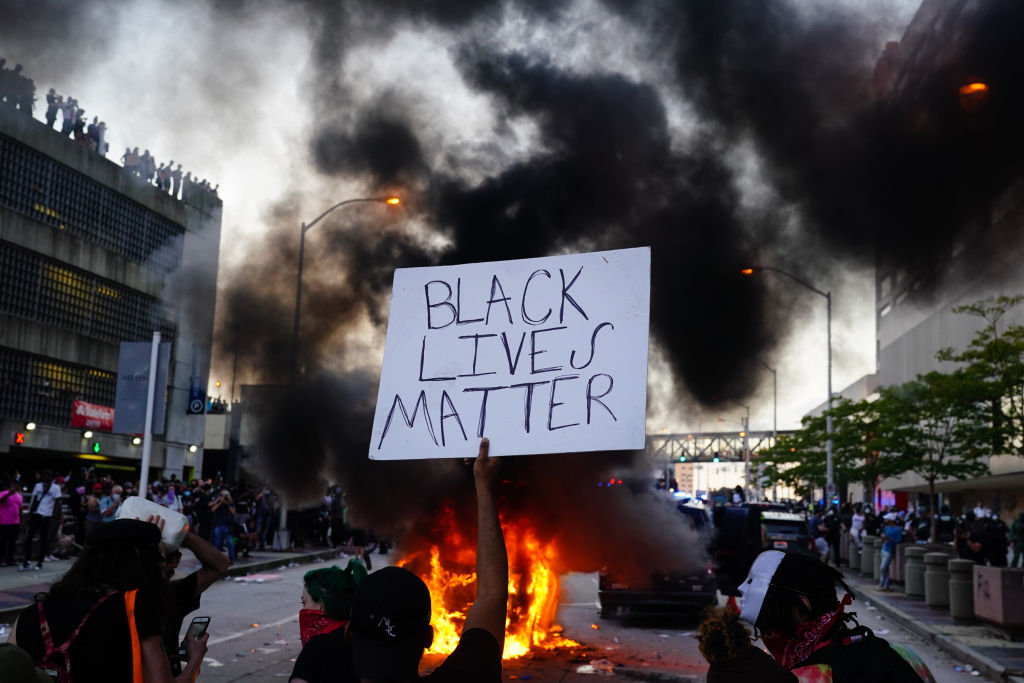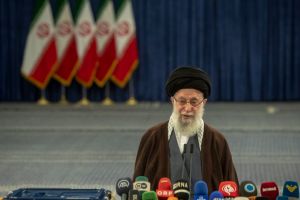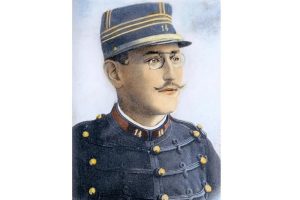Fifty-five years ago, Martin Luther King delivered a speech to 50,000 Americans in which he demanded justice for persecuted Jews behind the Iron Curtain.
‘The absence of opportunity to associate as Jews in the enjoyment of Jewish culture and religious experience becomes a severe limitation upon the individual,’ he said. ‘Negros can well understand and sympathize with this problem.’
He then stated, in typically uncompromising style, that Jewish history and culture were ‘part of everyone’s heritage, whether he be Jewish, Christian or Moslem.’ He concluded:
‘We cannot sit complacently by the wayside while our Jewish brothers in the Soviet Union face the possible extinction of their cultural and spiritual life. Those that sit at rest, while others take pains, are tender turtles, and buy their quiet with disgrace.’
This speech — released last week by the National Coalition Supporting Eurasian Jewry (NCEJ) to mark Martin Luther King Day, and coming just days before we remember the Holocaust — feels particularly poignant in the newly radicalized atmosphere of 2021. Today’s activists in the Black Lives Matter movement would be wise to remember King’s words.
During the Los Angeles riots over the killing of George Floyd, Jewish shops were destroyed, synagogues were sprayed with ‘free Palestine’ graffiti, and a statue of a Swedish diplomat who had saved Hungarian Jews from the Nazis was defaced with anti-Semitic slogans.
In France, a Black Lives Matter rally descended into cries of ‘dirty Jews’, echoing the anti-Semitic chants that filled the same streets during the Dreyfus affair a century ago. Shortly afterwards, the #Jewishprivilege Twitter hashtag sought to lump Jews together with the forces of oppression — until it was subverted by Jews posting accounts of the persecution suffered by their families. Jewish privilege indeed.
This anti-Semitism is hard to countenance in light of the historic bonds between Jewish Zionists and parts of the black community. Golda Meir, Israel’s first female leader, pointed out that ‘we Jews share with the African peoples a memory of centuries-long suffering.’ And she recalled that Theodor Herzl, the father of modern Zionism, had vowed: ‘Once I have witnessed the redemption of the Jews, my people, I wish also to assist in the redemption of the Africans.’
The animating spirit of Zionism — to replace centuries of meekness with self-actualization and national dignity — shared a common denominator with the civil rights movement.
Jews stood shoulder-to-shoulder with Dr King, and paid a price for it: several synagogues were attacked by the KKK with bombs and guns. Even ‘Strange Fruit’, Billie Holiday’s iconic protest song about a lynching in Indiana, was written by a Jewish high school teacher, Abel Meeropol. In the UK, the British Jewish tennis player Angela Buxton partnered with the African American star Althea Gibson in 1956 to face down racism and win the women’s doubles title at Wimbledon.
Why have some activists turned their backs on this tradition? The answer may lie in the figure of Malcolm X. Last summer, as the BLM riots raged, his daughter, Ilyasah Shabazz, told journalists that it was her firebrand father’s example that was driving the revolution, rather than that of the nonviolent Martin Luther King. Young people, she said, were ‘much like’ Malcolm X.
‘My father said that it would be this generation that would get sick and tired, that they would recognize the people in power have misused it,’ she said. ‘And that they will no longer sit by idly and allow these injustices to continue.’
Sadly, her father had often associated the ‘people in power’ with Jews. Throughout his life, he attacked what he called ‘Zionist-Dollarism’, deplored Israel and cast Jews as a race of white oppressors.
In his autobiography — which contains examples of the crudest anti-Semitism — Malcolm X poured scorn on the bond between Jews and the civil rights movement. ‘So many Jews actually were hypocrites in their claim to be friends of the American black man,’ he wrote. ‘I gave the Jew credit for being among all other whites the most active, and the most vocal, financial, “leader” and “liberal” in the Negro civil rights movement. But at the same time I knew that the Jew played these roles for a very careful strategic reason: the more prejudice in America could be focused upon the Negro, then the more the white Gentiles’ prejudice would keep diverted off the Jew.’
Dr King and Malcolm X were from very different backgrounds. While the former had an affluent upbringing in upper-middle-class Atlanta, Malcolm X was deeply scarred by racist abuse at a young age, and burned throughout his life with the fire of righteous vengeance.
Dr King, an advocate of nonviolence, famously pursued a world in which the color of one’s skin could be eclipsed by the content of one’s character. Malcolm X took a more militant tack. Violence, in his eyes, was not just justified but necessary. ‘Concerning nonviolence, it is criminal to teach a man not to defend himself when he is the constant victim of brutal attacks,’ he said. But while his radical politics were potent in the brutal context of segregation America, his legacy cast a shadow of divisiveness across our more tolerant age.
It goes without saying that Malcolm X was a towering figure in the civil rights struggle, and played a major role in enhancing black pride. But he was a figure both of dazzling light and troubled darkness. History has told us that if you want to know a person’s truest nature, examine his attitude toward Jews. If you find this to be malign, be on your guard; as the late Lord Sacks put it, ‘the hate that begins with Jews never ends with Jews.’
Dr King and Malcolm X were both assassinated almost six decades ago. In the years that followed, they have come to inspire the polarized forces that battle for the soul of Western culture all around us. While one sought to defuse racial tensions, the other attempted to force the aggressive ascendency of an oppressed community. The future of this struggle can be seen playing out today, on our streets, on our screens and in our institutions, as statues are toppled and synagogues defaced. It is a conflict that advocates of peace cannot afford to lose, as its outcome will shape society for decades to come.
This article was originally published on The Spectator’s UK website.


















